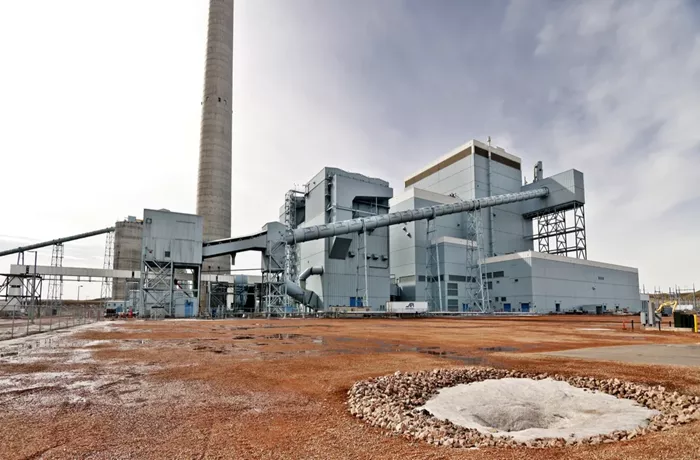The Dry Fork Power Station, a coal-fired plant located near Gillette, Wyoming, has received a significant boost from the Department of Energy (DOE) as it embarks on a pioneering carbon capture initiative. On August 27, the DOE’s Office of Clean Energy Demonstrations (OCED) awarded nearly $5 million to support Phase 1 of the “Carbon Capture Pilot at Dry Fork Power Station.” This funding is part of the larger Carbon Capture Large-Scale Pilot Projects Program, which has a total federal cost share of up to $49 million.
This pilot project is notable for being the first of four selected by the DOE to advance large-scale carbon capture technologies. The initiative will take place at the Wyoming Integrated Test Center (ITC), situated seven miles north of the Dry Fork Power Station. The ITC, which opened in May 2018, provides researchers with a facility to test Carbon Capture, Utilization, and Sequestration (CCUS) technologies using real coal-derived flue gas.
The focus of this pilot is to deploy a carbon capture system capable of capturing over 90% of carbon dioxide (CO₂) emissions from coal flue gas, achieving a high purity level of +95%. This system will use TDA Research’s innovative sorbent-based technology in a vacuum and concentration swing adsorption process. The goal is to capture up to 158,000 metric tons of CO₂ annually, with the potential for the technology to be scaled for use in coal plants globally.
During the 18 to 22-month Phase 1, TDA Research will conduct a front-end engineering design (FEED) study to outline the carbon capture specifications. The project will also involve workforce planning, project permitting, and integration into the National Environmental Policy Act review process. Additionally, there will be efforts to build community benefits and assess potential CO₂ sequestration options, including the Wyoming CarbonSAFE initiative.
This award marks the first under the Carbon Capture Large-Scale Pilot Projects Program, funded by the Infrastructure Investment and Jobs Act (IIJA) of 2021, which allocates $937 million for developing advanced carbon capture technologies. The program aims to enhance the efficiency and environmental performance of coal and natural gas use in power generation and industrial applications.
Related topics:
- The Future of Solar Power: Is Space-Based Energy a Reality?
- Vodafone Pilots Europe’s First 5G Network at Czech Nuclear Power Plant
- Italy Launches Groundbreaking CCS Project with Initial CO2 Injection

